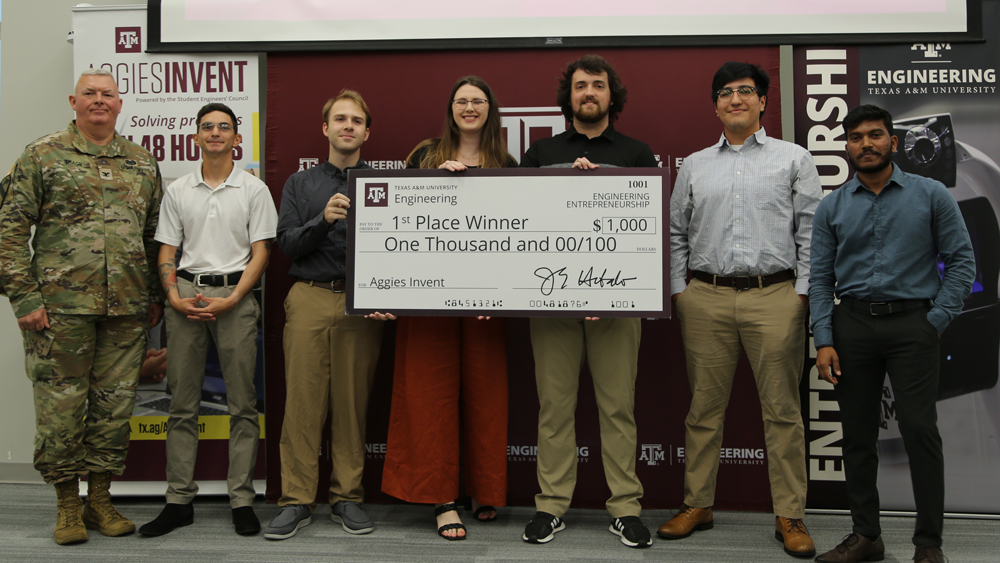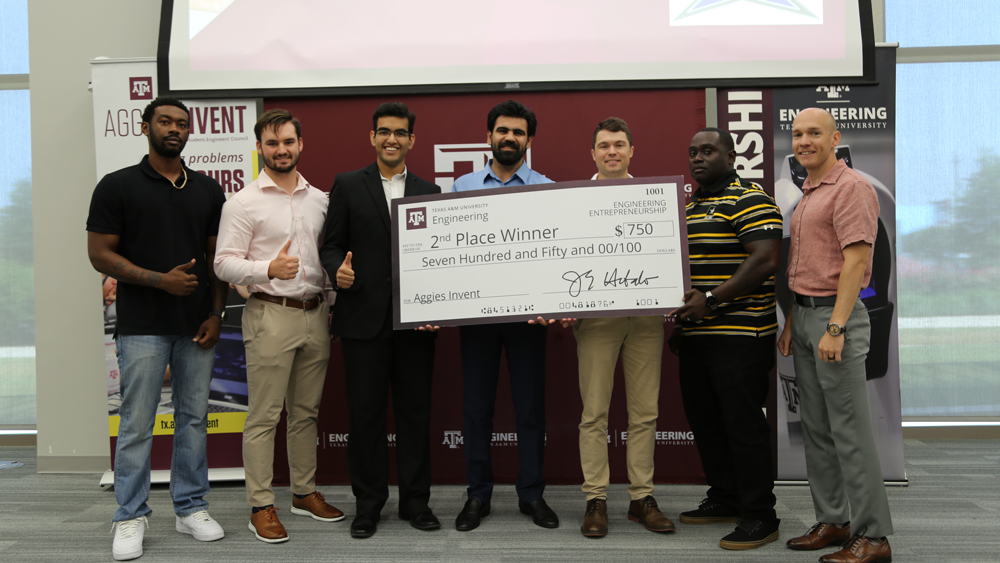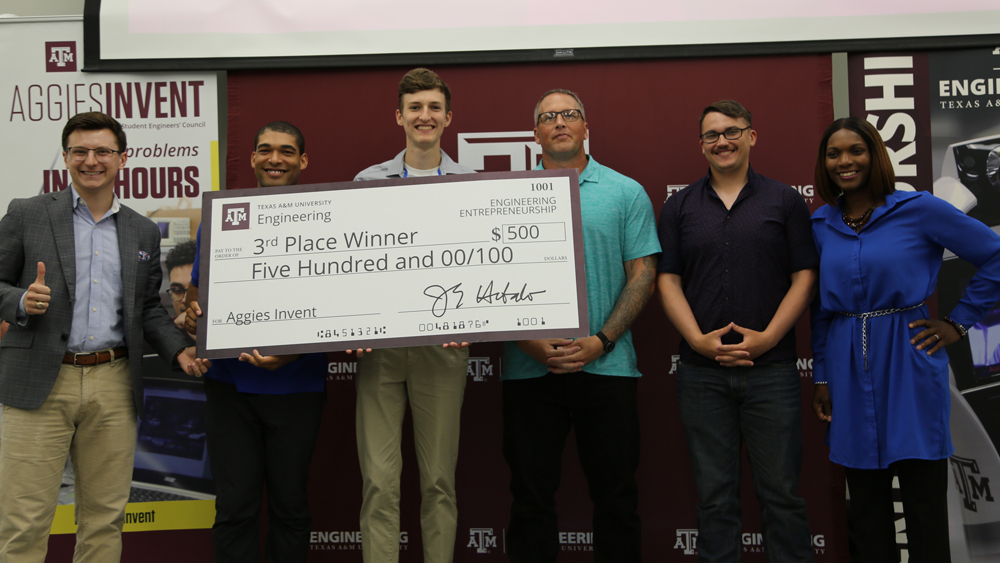
Texas A&M University’s College of Engineering, in collaboration with the U.S. Army's III Armored Corps, hosted Phantom Invents, an Intensive Design Experience training event held June 12-16, which brought together 30 soldiers and 30 students to cultivate their problem-solving abilities and unlock innovation for challenges faced by the U.S. military.
There were four winning teams at the event, with varying focuses, each bringing a unique and new direction to current military technology and processes.
Team HitchHawk placed first at the event and focused on solving a critical issue faced by maintenance teams in towing the Army’s utility tactical transport helicopters — UH-60 Black Hawks — off uneven or unimproved terrains. The narrow landing wheel on the tail of Black Hawks often causes problems, leading to damaged wheels, broken gears and sheared bolts. The team developed the "HitchHawk," a solution to mitigate negligence and provide a reliable method for towing Black Hawks across any terrain by giving Army maintenance crews an efficient tool to get the helicopter home safely and back to an improved surface.

“A lot of gears and pins that hold the wheels in place are often forgotten in the operation of towing, and a lot of these bolts are sheared and destroyed,” said Treyte Kuenstler, senior mechanical engineering student. “The solution we invented was essentially striving to mitigate a lot of the negligence that may occur but also enable our military to move these helicopters no matter the conditions.”
During combat, soldiers may lose connection to their radio communications. Second-place team, ArtiNet, focused on establishing frequency modulation (FM) beyond line-of-sight connectivity to reduce its time and manpower commitments. Their product, ArtiNet, is a retransmission device capable of deploying within seconds and reinforcing radio communications for stranded soldiers. ArtiNet would eliminate the need for a retransmission team by enhancing signal strength and saving time and resources.
Third-place team, PhanTAM Floaters, decided to tackle the obstacles associated with measuring a large body of water to determine the most efficient way to cross. Their solution, a device called Phantam Cast, measures the water depth and distance from one side of the water body to the other while also evaluating how quickly a soldier or team could cross safely.

The fourth-place team, Maintenance 101, created a solution to the Army’s current vehicle maintenance that equips soldiers with an efficient way to maintain vehicle inspections. The team’s requirements for their product were that it be weather-resistant, secure, user-friendly and digital. Their final product was Maintenance Master, a tablet system enabling operators to seamlessly conduct an accurate vehicle inspection while offering data analysis for predictive maintenance.
Phantom Invents marked a significant milestone in bridging the gap between soldiers and students, paving the way for future collaborations and innovations. Through events like this, the College of Engineering at Texas A&M University and the U.S. Army's III Armored Corps continue to nurture the spirit of innovation, pushing boundaries and solving complex challenges presented by industry. Additionally, the event offered an opportunity for students to engage with the military who may be interested in pursuing future careers in the field.
“This was our first opportunity to do an event like this,” said Blake Alexander, the regional engagement principal for NSIN. “NSIN has held Department of Defense capstones and Hacking 4 Defense courses with the idea that we're getting students exposed to Department of Defense problems and hoping they want to go into graduate-level research or work at one of the Army labs down the road. Phantom Invents offers the opportunity to integrate the soldiers and the students, side-by-side, which was a really fun, one-of-its-kind opportunity. I think we're going to be able to scale this since it was so successful. Hopefully, the III Armed Corps and all our mission partners will want to do something similar down the road.”